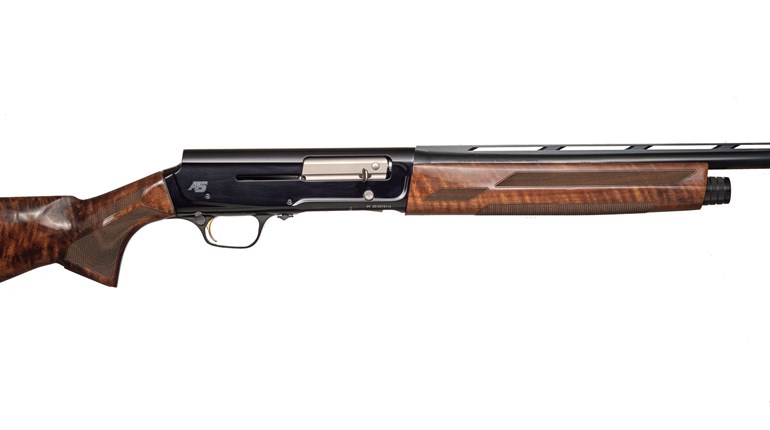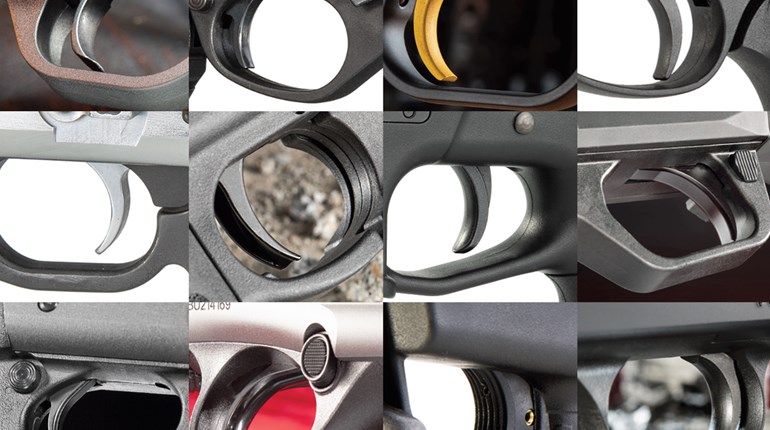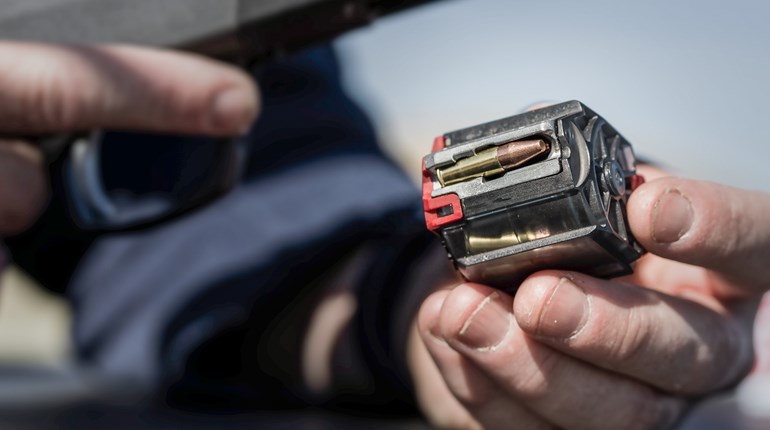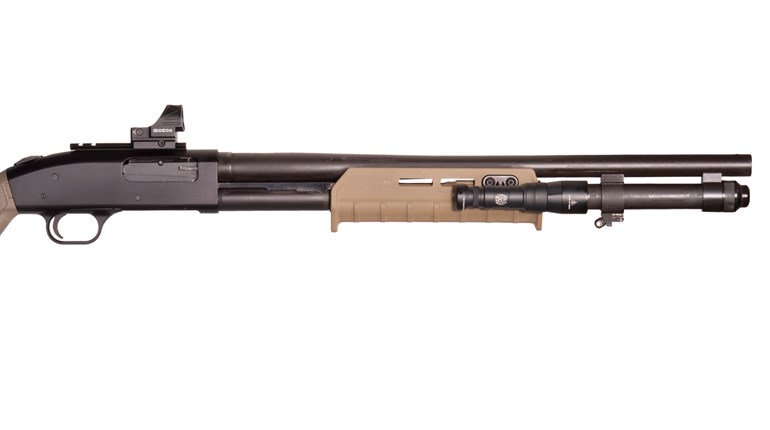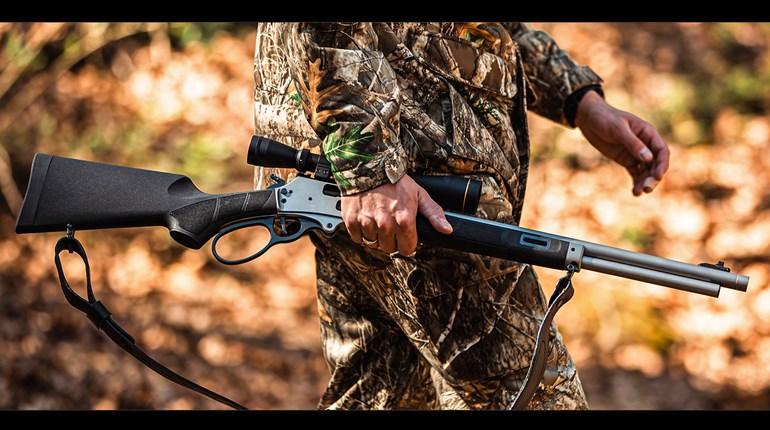
I assume most loyal Shooting Illustrated readers realize that a shotgun behaves nothing like Joe Biden, NBC’s Pete Williams and Hollywood’s pretenders say. These “experts” would have you believe you can just wave a shotgun toward center field, yank the trigger and everything in its swath—from first to third base—will tumble backward and die.
Shotgun folks know buckshot spreads at a rate of about 1 inch-per-yard at most, and that’s only if a cylinder choke is used. If you yank the trigger, chances are good you’ll whiff the target. Trouble is, shotgun triggers were designed for bird hunting, where shooters point at a flying critter and slap the trigger. While most bird hunters would appreciate a lighter trigger with less creep, they can make do, because at 40 yards patterns are like a cast net and the barrel is moving rapidly anyway. As a result, shotgun triggers have evolved very little.
There’s no more embarrassing way to learn how bad a shotgun’s trigger is than by shooting groups with slugs. Just take your factory Remington 870 out, hang a bullseye target and try it. You’ll squeeze, try to hold still, squeeze some more, brace for recoil, look up to make sure the gun’s not on safety and eventually, after what seems like pulling a boat anchor through a pen of pig slop, the gun will fire. It’s after you repeat that exercise three times that you realize it’s difficult to be accurate with such a horror-show trigger. Competitive trap and skeet shooters have long known they can benefit from lighter triggers, and so too can defensive shotgunners.
There are several options for improving your trigger pull. First, you can dry fire religiously for practice. No matter how awful your shotgun’s trigger may be, dry firing helps. After enough repetitions, courage and discipline, your body can learn how to master it. After all, most mass-produced shotguns don’t even fit the shooter well, but with enough practice, the body adapts to it and learns how to make do. Same thing with the trigger.
Better yet, you can take your shotgun to a gunsmith who specializes in shotgun triggers, but make sure the ’smith comes recommended. Call to find out how many shotgun triggers have passed through the shop for improvement—is it one or two, or a few hundred? Ask specific questions, like the trigger’s final pull weight, and what work is actually done to improve them. Ask if work performed is tested for safety and completeness before it is declared finished. Mainly, try to determine competency. Watching a YouTube video to fix your juice-loosener is one thing, but gambling with the activator of your defensive shotgun is another.
Lastly, you can buy a quality trigger or trigger-improvement kit for your shotgun. Trouble is, very few are available, and they’re not cheap. Briley Manufacturing probably makes the best complete trigger-upgrade unit for some of the most popular shotguns, including Benelli, a few Beretta models, Remington’s Versa-Max, Stoeger and a few others. (Briley also offers gunsmithing services.) The Texas-based company’s gold-colored Match trigger group completely replaces your shotgun’s factory trigger group; it’ll lower the pull weight to about 3.5 pounds. That’s better than the 6 pounds or so that is the factory average.
Timney makes triggers for nearly everything, and so I was surprised to learn that the only shotgun trigger option it offers is its “Trigger Improvement Kit” for certain Remington shotguns, including the 870 and 1100. When I asked Timney owner John Vehr why there aren’t more aftermarket shotgun triggers available, he said, “There are so many parts to a shotgun’s fire-control system that it is prohibitive to manufacture an aftermarket precision trigger for a reasonable price.”
Briley Manufacturing’s Hannah Price said basically the same thing. “They’re relatively difficult to build,” she said. “Plus there are timing and tuning issues that are different with every gun.” That’s why Briley’s match trigger costs $270; customers must remove their shotgun’s trigger group and send it to Briley for installation of its Match trigger. Then, a Briley gunsmith tunes and times it before shipping it back to you.
Just a few years ago, Mossberg introduced its LPA (Lightning Pump Action) trigger in a few pump-action models. It was adjustable for poundage, and most of my peers reported that it was better than stock-trigger versions. But, for some reason it has been discontinued. I reached out to Mossberg but couldn’t get an answer. It makes me wonder whether there were problems with the LPA in some way, or, more likely since there was not a recall, if it was too expensive to produce in volume when demand for great shotgun triggers is not high.
You could probably go the rest of your life without ever pulling an improved trigger on your defensive shotgun, and likely you’ll be just fine making do with what you’ve got. But, I’m a shotgun guy, and I like specialized equipment. If improving a shotgun’s trigger can make missing even a touch less likely or give me even the slightest edge in winning a fight, I’m going to take a hard look at doing so.










